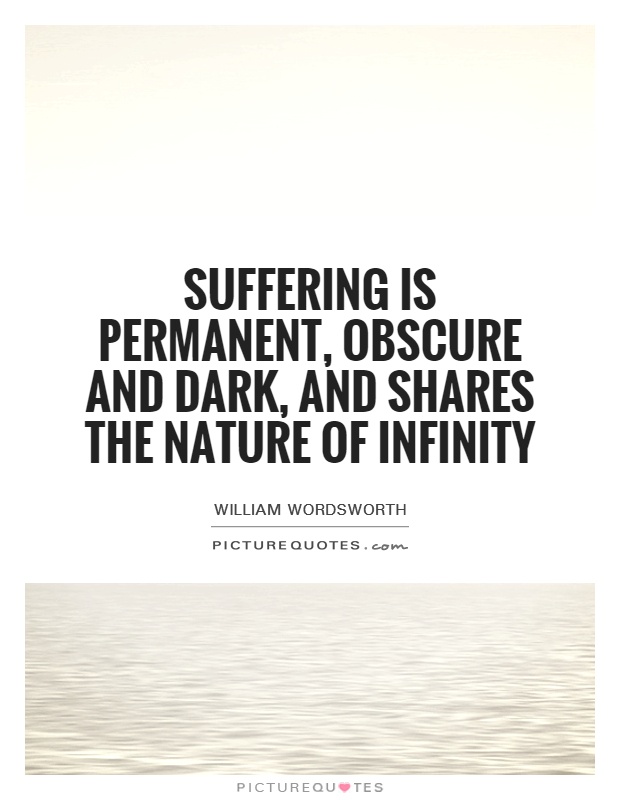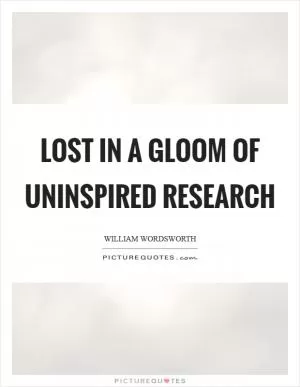Suffering is permanent, obscure and dark, And shares the nature of infinity

Suffering is permanent, obscure and dark, And shares the nature of infinity
William Wordsworth, a prominent figure in the Romantic literary movement, often explored themes of nature, emotion, and the human experience in his poetry. In his work, Wordsworth frequently delved into the complexities of suffering and the ways in which it shapes and defines our existence. One of his most famous lines, "Suffering is permanent, obscure and dark, And shares the nature of infinity," encapsulates his profound understanding of the enduring nature of pain and its profound impact on the human soul.Wordsworth believed that suffering was an intrinsic part of the human condition, a universal experience that transcended time and space. In his poem "Lines Composed a Few Miles Above Tintern Abbey," he reflects on the ways in which suffering can shape our perceptions of the world and our place within it. He writes, "The heavy and the weary weight / Of all this unintelligible world," capturing the weight of suffering and the burden it places on the human spirit.
For Wordsworth, suffering was not just a temporary affliction, but a fundamental aspect of human existence. He believed that it was through our experiences of pain and hardship that we could truly understand the depth of our emotions and the complexities of our inner selves. In his poem "Ode: Intimations of Immortality," Wordsworth explores the idea that suffering can lead to a deeper appreciation of life and a greater sense of connection to the world around us.












 Friendship Quotes
Friendship Quotes Love Quotes
Love Quotes Life Quotes
Life Quotes Funny Quotes
Funny Quotes Motivational Quotes
Motivational Quotes Inspirational Quotes
Inspirational Quotes